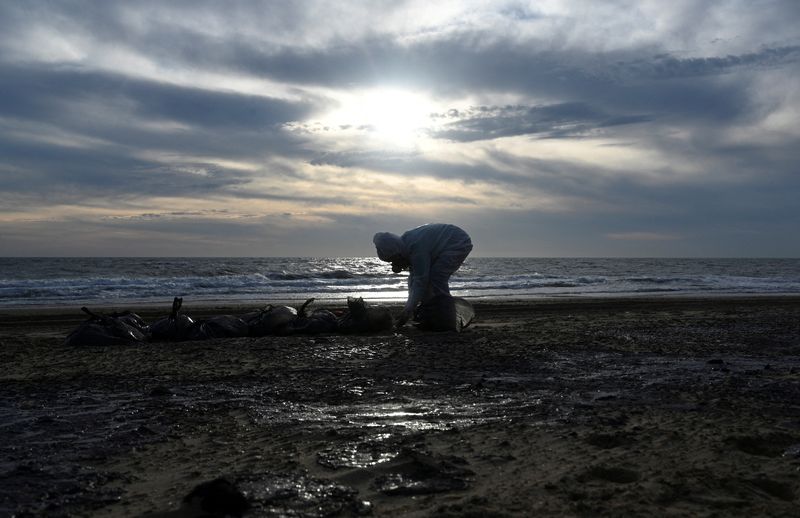
(Reuters) – Russia declared a regional state of emergency on Saturday in the Crimean peninsula it seized from Ukraine in 2014, while workers removed tons of contaminated sand and dirt on both sides of the Kerch Strait in the wake of an oil spill in the Black Sea last month. .
Mikhail Razvozaev, the Russian-appointed governor of Sevastopol, said new traces of minor pollution required urgent removal and declared a state of emergency in the city, giving authorities more power to make quick decisions such as ordering citizens to evacuate their homes.
The Kerch Strait extends between the Black Sea and the Sea of Azov and separates the Kerch Peninsula in Crimea from the Russian Krasnodar region.
Rescue workers have now removed more than 86,000 metric tons of contaminated sand and soil, the Emergencies Ministry said on Saturday. Oil leaked from two old tankers that were hit by a storm on December 15. One of them sank and the other ran aground.
More than 10,000 people work to extract sticky, foul-smelling fuel oil from the sandy beaches in and around the summer resort of Anapa. Environmental groups have reported deaths of dolphins, porpoises and seabirds.
The Emergencies Ministry said on the Telegram messaging app that oil-contaminated soil had been collected in Russia's wider Kuban region and in the Crimean Peninsula, which most other countries have not recognized as annexed to Russia.
The ministry published video clips of dozens of workers wearing protective suits loading bags of dirt onto the diggers and others scraping dirt from the sand with shovels.
The Russian Transport Ministry said this week that experts had found that about 2,400 metric tons of petroleum products had leaked into the sea, a smaller leak than initially expected.
When the disaster struck, state media reported that the two stricken tankers, both over 50 years old, were carrying about 9,200 metric tons (62,000 barrels) of petroleum products in total.

The spill involved M100 grade heavy fuel oil which solidifies at 25 °C (77 °F) and, unlike other petroleum products, does not float to the surface but sinks to the bottom or remains suspended in the water column.
(This story has been corrected to say that Razvozaev is the governor of Sevastopol, not Crimea, in paragraph 2)







